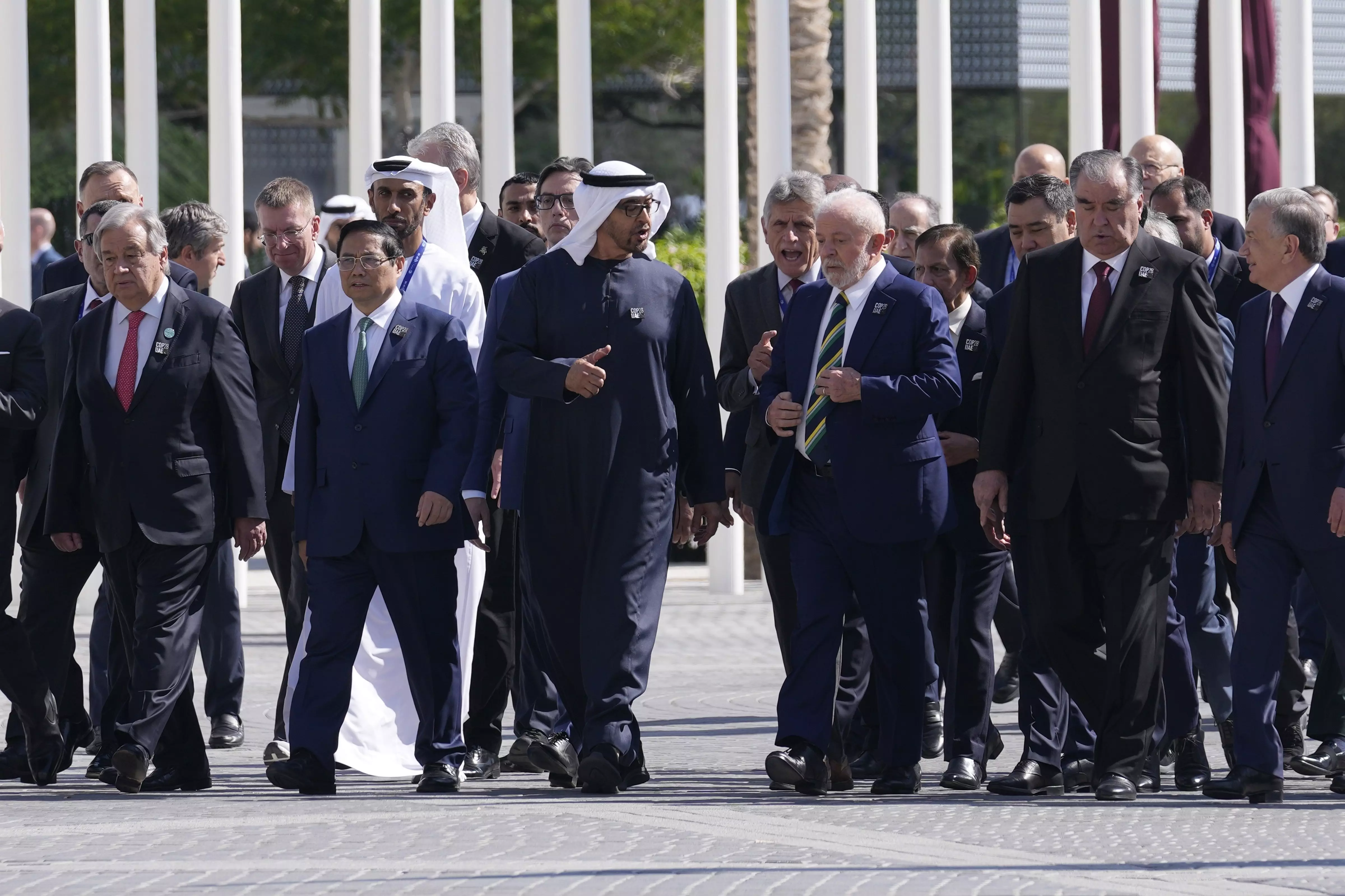
UN climate talks: Progress on some fronts at end of first week but fossil fuels lurk

Dubai, Dec 6 (AP) Negotiators at a critical United Nations climate conference prepared on Wednesday to wrap up their first week of work with moderate progress on some issues, with little time to make a bit more headway before government ministers return for a final week that will shape the planet's path forward in the face of crisis.
Wednesday's sessions were to focus on transport, the second-leading sector for the carbon dioxide emissions warming the planet, with panels like building out EV charging infrastructure and decarbonizing urban freight transportation.
Despite rapid growth of electric vehicles in some countries, oil still accounts for nearly 91 per cent of the energy used in the transport sector, according to the International Energy Agency. And it's a sector that includes hard-to-decarbonise industries like aviation and shipping, where cutting emissions will require big ramp-ups in production of sustainable aviation fuel, for airplanes, and alternative fuels like hydrogen for ships.
The climate talks notched some measured wins in the first week when nations finalised the creation of a “loss and damage” fund to compensate countries hit by climate disasters. 50 oil companies pledged to reach near-zero methane emissions by 2030, a commitment from the industry to slash greenhouse gases, but “short of what is required,” according to UN Secretary-General Antonio Guterres.
Yet environmentalists are intensely focused on obtaining commitments for the world to phase out the use of coal, oil and natural gas. Climate negotiators are zeroing in on exactly how to deal with the fossil fuels that are overheating the planet.
On Tuesday, negotiators produced a new draft of what's expected to be the core document of the UN talks, something called the Global Stocktake, but it had so many possibilities in its 24 pages that it didn't give too much of a hint of what will be agreed upon when the session ends next week. Whatever is adopted has to be agreed on by consensus so it has to be near unanimous.
“It's pretty comprehensive,” COP28 CEO Adnan Amin told The Associated Press on Tuesday. “I think it provides a very good basis for moving forward. And what we're particularly pleased about it is that it's this early in the process.” That will give time for a lot of give-and-take, Amin said, particularly over the area of the future of fossil fuels, “where there's going to be a very intensive engagement process.” Climate scientist Bill Hare, CEO of Climate Analytics, said the central issue of the meeting "is to reach a conclusion about the phasing out of fossil fuels. And unless we do that, I doubt whether we're going to see an improvement in temperature.” The options in the draft on the future of fossil fuels range from a less-stringent “phasedown of unabated coal power" to a simple but dramatic “an orderly and just phase out of fossil fuels.” Amin said since September there's been quite a bit of “momentum and clarity” for a phase-out of fossil fuels. Two-and-a-half months ago he thought the requirement for all countries to agree would likely doom “phase-out” language.
But that could still change. Amin said because some countries, particularly poorer ones may see phase-out as too restrictive, negotiators could even hit their thesauruses for alternatives to the much discussed phase-out or phase-down wording.
Scientists who track climate action said it's crucial to watch the language for loopholes.
“We need to phase out of fossil fuels completely without a back door,” said New Climate Institute's Niklas Hohne. “At this conference, there's actually many back doors being proposed at the briefing table ... mainly for prolonging the life of fossil fuels, and one is to talk about unabated' fossil fuels.” Including “unabated” means allowing the burning of fossil fuels if their emissions can be captured and stored, a technology that's much talked about but really hasn't proven to work well, Hohne and other scientists have said. (AP)

